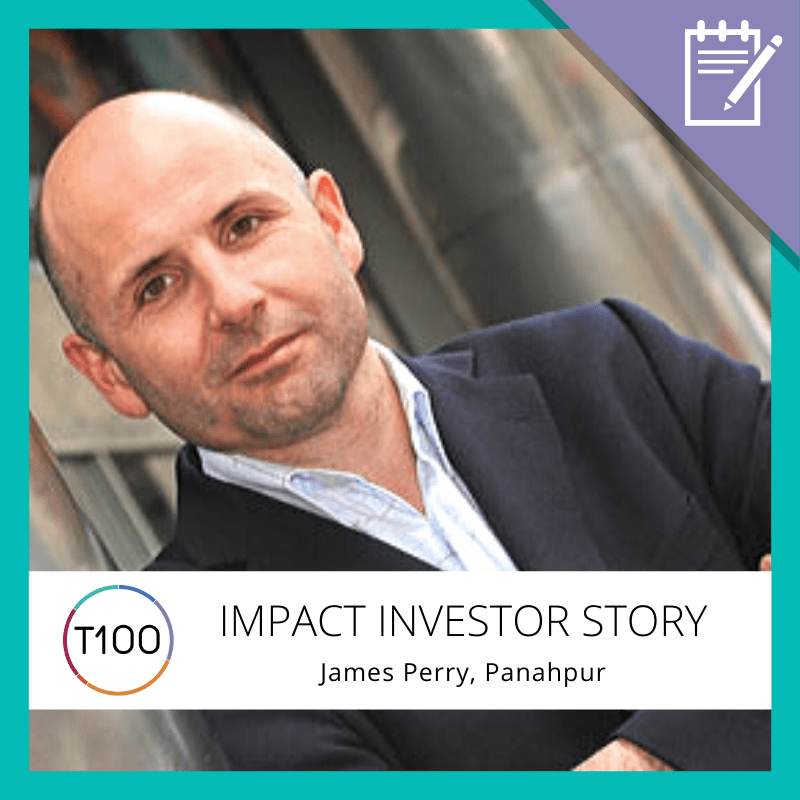James Perry, Panahpur
James Perry confesses that he grew up in a Christian home – “that was not very religious!” If the UK-based Perrys were not much of a church-going family, it doesn’t mean they were not practicing sharing and charity. Actually, the tradition goes back to Colonel Jacob, Perry’s great great grandfather, an engineer for the Raj.
In 1905, he encountered a group of orphans along a road in Uttar Pradesh. “So he set up a village for them in this remote part of Northern India, and called it Panahpur, which means ‘place of refuge’ in hindi,” tells Perry. Col Jacob’s son, who became a successful lawyer in London, started a foundation by the same name. James Perry, 44, is now Chief Executive of Panahpur. “My father went back to the village a few years ago and was treated like royalty!” Perry laughs.
Entrepreneurship for the Good of All
Apart from charity, entrepreneurship also runs in the family.
“My father’s purpose for his business was to create value for everybody, not just himself,”
Perry explains. He grew up with the idea that this was what business was for. “But my father, who used the company to employ addicts, was more interested in social transformation than money,” he says. So he decided to go into business himself to “strike a better balance” He joined a graduate training scheme at Cadbury business school (yes, the chocolate company). “They were transitioning from being very values-driven to running the business for shareholder value alone” he recalls, but Perry still thought at that time it was a choice: “either to pursue a holistic world view or a purely shareholders’ value one.”
After having launched a food business with his brother, it was time, in the early 2000s, to tap the venture capital market to grow it. But the two brothers didn’t want to agree to the terms of the investment on offer. “I realized there was no money that would allow you to preserve a broader mission than financial value maximising,” Perry emphasizes. And the fact that the financial system was geared towards favoring shareholders’ financial value at all costs was “madness,” as far as he was concerned. “It was my epiphany,” Perry now says.
A few years later, Perry started helping his family with the Panahpur Foundation. Its mission is social inclusion, with a local focus and a global mandate – which now means investing in Community Shares Underwriting funds, in funds that buy rental property to address homelessness, and in renewable energy, for example. Having sold a property asset of the foundation, Panahpur found itself with a lump sum for charitable purposes. As with the venture capitalists before, Perry begged to disagree with investment managers: “They told us that our goal should be to make as much money as possible, to maximize the funds available to give away to charitable purposes,” he explains. His opinion, on the contrary, was that the global financial system was creating social problems at such a rapid pace that charities couldn’t fix them as fast as the financial system was creating them.
So the family, under Perry’s leadership, decided to do impact investing on its own, starting with low interest loans to charities.
Then, along with a local impact investor, the foundation dipped its toes in angel investing in Bangladesh, investing in a village business making “eco-coffins” from natural material. It also invested in systemic solutions such as crowdfunding for renewable energy. And since in the UK, there is an investment market for social enterprises, Panahpur also went into this segment, alongside institutional investors such as Big Society Capital.
However, after a few years of investing this way, “we came to two conclusions,” expands Perry.
“Instead of being a venture investor, we wanted to be a portfolio investor holding assets in various asset classes,
which would make the endeavor much more replicable, and we also realized that impact investment was much broader than just investing in charities and a few social enterprises.”
The foundation adopted PRI (Principles for Responsible Investment) first, then moved into portfolio impact investing. “When you embrace a portfolio approach, then the work becomes relevant to all capital in the world,” Perry marvels. Panahpur found most of its inspiration in the KL Felicitas Foundation, which had pioneered multi-asset class portfolio theory for impact. Panahpur’s portfolio held cash, private and public debt and equity, as well as real estate. Cash was moved from HSBC to a range of sustainable banks. The rest, apart from public equity, followed the same impact investing path. “Public equity is the most complex area,” Perry laments. Though the Foundation adopted a more direct approach, with the help of various managers, “we haven’t cracked the public equity sector yet,” Panahpur’s CEO admits. True, the portfolio features best-of-class ESG-screened companies, “but this not 100% impact, yet,” Perry says. His frustration chiefly comes from the fact that he hasn’t found a public equity fund manager with a convincing impact screen. “From chrysalis, Panahpur did become a butterfly,” muses Perry, “but is not flying high enough.”
“We need more capital under management for more scale and impact,” he goes on. How can the Foundation achieve this? “By cooperating with other like-minded foundations and fund managers to pool funds,” he answers.
Flying Higher
With the help of a very supportive board, Panahpur also helps to build the field of impact investing. Along with other foundations’ heads and a small group of fund managers, they were involved in conversations that led the British government to refine investment guidance to charities.
“The way it was originally designed was forcing charities to maximize profits whilst socializing costs,” Perry explains. The government understood the point – and changed the rules. But something else still bothers Perry: impact investing is mostly the privilege of the wealthy. How to democratize impact investing, then? “How about having a multi-asset class, impact investing mutual fund and list it?” Perry asks. He is currently exploring this option with other impact investors, “since even in the City, nobody does this at the moment!” he says. Obviously, for him, it’s high time to convert these high-flying professionals, as well as those who make the rules, to a new religion.

